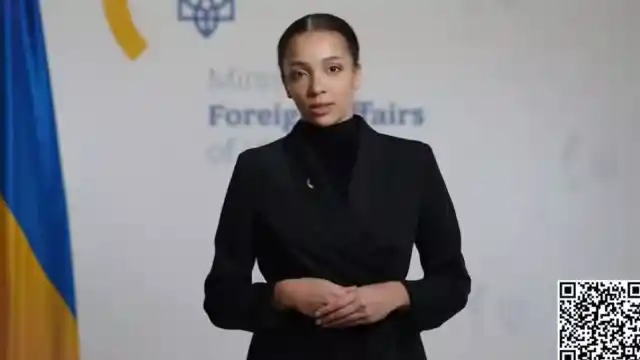Table of Contents
Artificial Intelligence (AI) is no longer confined to the realms of science fiction. It has permeated every facet of our lives, transforming the way we work, communicate, and interact. One of the most groundbreaking applications of AI is its incorporation into the diplomatic sphere by Ukraine’s Ministry of Foreign Affairs, a pioneering move that marks a new era in global diplomacy.
Victoria Shi: The Face of AI Diplomacy

In an unprecedented move, Ukraine’s Ministry of Foreign Affairs has unveiled an AI-generated avatar, Victoria Shi, as its digital spokesperson. This marks the first instance of an AI entity being employed in a diplomatic capacity. Victoria Shi, clad in a professional dark suit, introduces herself as a digital persona in a video shared on social media platforms. As she articulates her statements, her head and hands move in a lifelike manner, adding a touch of realism to her digital presence.
Victoria Shi’s role is to deliver prepared official statements on behalf of the Ministry. These statements, penned by human diplomats, are then communicated to the public through Victoria’s AI-generated avatar. This innovative approach to information dissemination is a testament to the transformative power of AI in enhancing diplomatic communication.
The Human Touch in AI Diplomacy
Victoria Shi, the AI spokesperson, is not just a digital entity but also embodies human-like characteristics. Her voice and tone are modeled after Rosalie Nombre, a popular Ukrainian singer and TV personality. This human touch makes Victoria more relatable and engaging to the audience. However, the Ministry maintains a clear distinction between Nombre and Shi. While Nombre’s voice gives life to the AI avatar, only Victoria Shi is authorized to deliver official statements. This blend of technology and humanity enhances communication effectiveness and fosters a deeper connection with the audience.
Safeguarding AI Diplomacy Against Deepfakes
👋 Meet Victoria Shi — a digital representative of the MFA of Ukraine, created using AI to provide timely updates on consular affairs!
— MFA of Ukraine 🇺🇦 (@MFA_Ukraine) May 1, 2024
For the first time in history, the MFA of Ukraine has presented a digital persona that will officially comment for the media. pic.twitter.com/KTtuCVR1ku
In the context of AI diplomacy, safeguarding against deepfakes involves ensuring the authenticity of the AI spokesperson’s statements. For this, Ukraine’s Ministry of Foreign Affairs has implemented a unique QR code system. Each statement made by the AI spokesperson, Victoria Shi, is accompanied by a unique QR code. This code links to the official text version of the statement on the Ministry’s website. This measure helps verify the information and protects against potential misinformation or deepfake incidents.
The Future of AI Diplomacy
The introduction of an AI diplomat signifies a monumental shift in diplomatic practices. While Victoria Shi currently serves as a visual representation, the future holds immense potential for AI systems trained in foreign policy to undertake more complex tasks and communications.
The creation of Victoria Shi was spearheaded by a team known as The Game Changers, who have previously developed content related to the war in Ukraine. The primary motivation behind Victoria’s creation was to conserve diplomats’ time and resources, demonstrating the efficiency and cost-effectiveness of AI diplomacy.
The adoption of AI in diplomacy by the Ukrainian government is a significant milestone that is likely to inspire other nations to follow suit. As we stand on the brink of a new era in global diplomacy, the integration of AI into diplomatic practices heralds a future where technology and diplomacy converge to create a more efficient and effective diplomatic landscape.
In conclusion, the advent of AI diplomacy, as exemplified by Ukraine’s innovative approach, is a testament to the transformative potential of AI in reshaping global diplomacy. As we move forward, it will be fascinating to observe how AI continues to revolutionize diplomatic practices worldwide, marking a new chapter in the annals of diplomatic history.